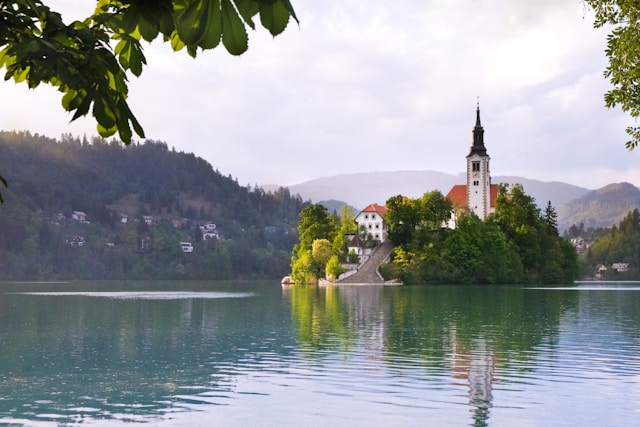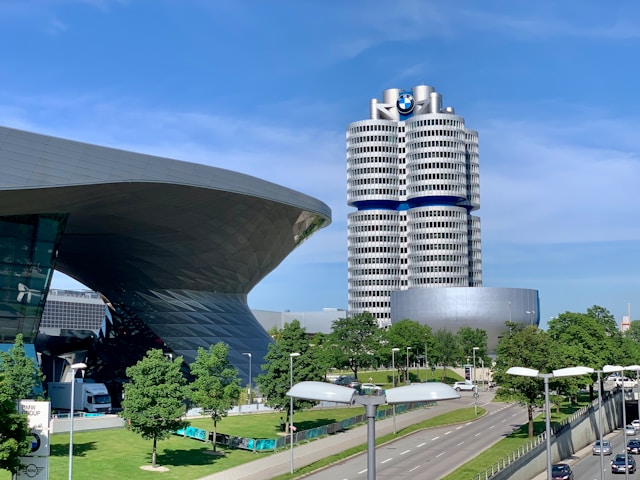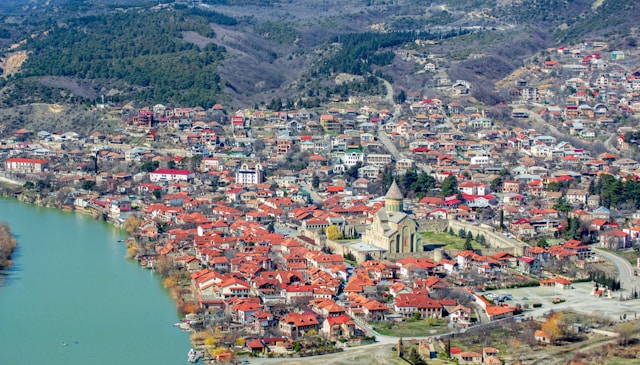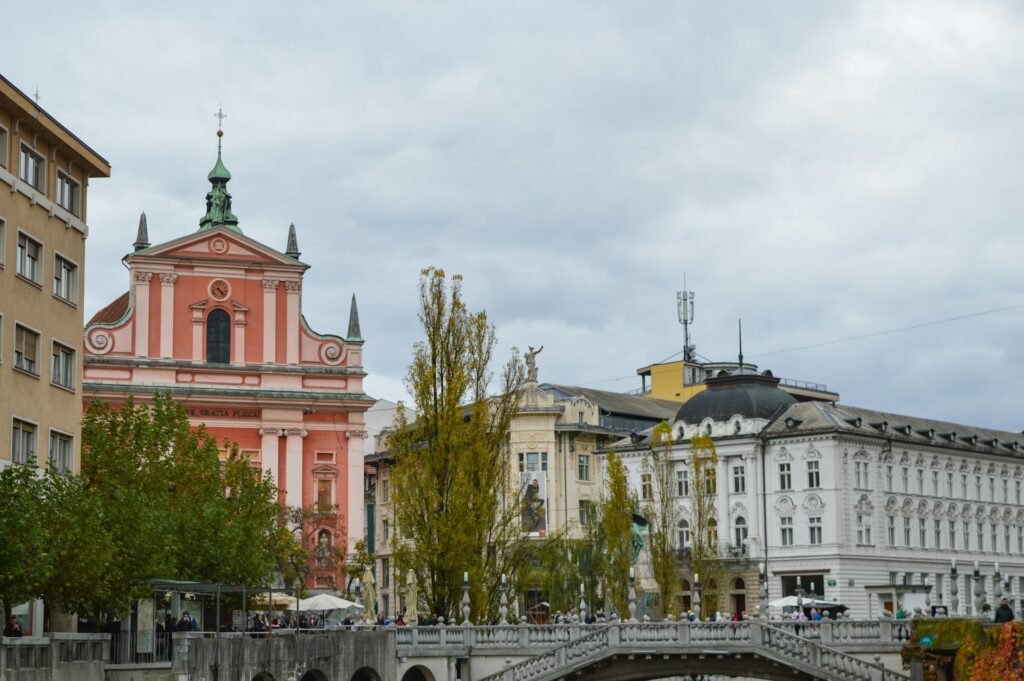Slovenia emerges as one of Central Europe’s most compelling investment destinations, offering unique advantages that combine European Union market access with competitive operating costs and strategic geographic positioning. This Alpine nation of 2.1 million people serves as a crucial bridge between Western Europe, the Balkans, and emerging Eastern European markets, creating exceptional opportunities for investors seeking European market entry with optimal cost-efficiency ratios.

The country’s remarkable economic transformation since joining the European Union in 2004 demonstrates consistent growth, political stability, and business-friendly policies that attract international capital across diverse sectors. Slovenia’s highly educated workforce, advanced infrastructure, and commitment to innovation create an ideal environment for companies seeking to establish European operations while maintaining competitive advantages through lower operational costs compared to Western European alternatives.
From advanced manufacturing and green technology to logistics and financial services, Slovenia presents investors with access to established industries alongside emerging sectors that capitalize on the country’s natural resources and strategic location. The nation’s pro-business government policies, EU regulatory framework, and growing reputation as Central Europe’s innovation hub make it an increasingly attractive destination for both European and international investors.
Strategic Location Advantages: Slovenia’s Gateway Position in Central Europe
Slovenia’s geographic position creates unparalleled strategic advantages for businesses seeking to access multiple European markets from a single location. Situated at the crossroads of the Alps, Mediterranean, and Pannonian Plain, Slovenia provides direct access to over 500 million European consumers within a 1,000-kilometer radius, making it an ideal distribution and manufacturing hub for companies targeting Central and Eastern European markets.

The country’s transportation infrastructure ranks among Europe’s most advanced, with modern highway networks connecting major commercial centers to neighboring Austria, Italy, Hungary, and Croatia. The Port of Koper serves as Central Europe’s gateway to Mediterranean and global markets, handling over 25 million tons of cargo annually while providing landlocked countries with crucial sea access for international trade operations.
Ljubljana Jože Pučnik Airport offers connections to major European business centers while serving as a regional hub for cargo operations. The airport’s expansion projects and increased flight frequencies demonstrate Slovenia’s commitment to enhancing connectivity for business travelers and freight operations essential to international commerce.
Rail infrastructure improvements, including high-speed connections to major European cities, position Slovenia as a critical link in trans-European transportation networks. The country’s participation in the European Union’s TEN-T transport network ensures continued infrastructure investment that benefits businesses requiring efficient logistics and distribution capabilities.
Slovenia’s time zone alignment with major European business centers facilitates real-time communication and coordination with clients, suppliers, and partners across the continent. This synchronization advantage, combined with the country’s multilingual workforce, creates operational efficiencies that reduce coordination costs while improving business responsiveness.

The country’s Schengen Area membership eliminates border controls with neighboring EU countries, streamlining movement of goods, services, and personnel throughout the region. This seamless integration reduces administrative burdens while accelerating business operations that depend on cross-border coordination and supply chain efficiency.
Manufacturing Excellence: Slovenia’s Industrial Innovation Hub
Slovenia’s manufacturing sector represents the cornerstone of the country’s economic success, contributing over 25% of GDP while demonstrating consistent growth and technological advancement. The sector’s evolution from traditional heavy industry to high-tech manufacturing creates compelling investment opportunities for companies seeking European production capabilities with competitive cost structures.
The automotive industry exemplifies Slovenia’s manufacturing excellence, with major suppliers including Revoz (Renault), Adria Mobil, and numerous component manufacturers serving European automotive markets. The sector’s integration into global supply chains, combined with Slovenia’s skilled workforce and advanced manufacturing capabilities, creates opportunities for automotive investors seeking European market access.
Pharmaceutical and chemical manufacturing represents another key strength, with companies like Krka and Lek (Novartis) establishing Slovenia as a significant pharmaceutical production center. The sector benefits from strong research and development capabilities, regulatory compliance expertise, and cost advantages that make Slovenia attractive for pharmaceutical manufacturing and research operations.

Metal processing and machinery manufacturing leverage Slovenia’s industrial heritage while incorporating modern technologies and processes. Companies in these sectors serve diverse markets including construction, energy, and industrial equipment, benefiting from Slovenia’s central location for serving European customers efficiently.
Electronics and electrical equipment manufacturing has grown substantially, with companies producing components for telecommunications, consumer electronics, and industrial applications. The sector’s growth reflects Slovenia’s ability to attract high-tech manufacturing while maintaining cost competitiveness compared to Western European alternatives.
Food processing and bevererage production capitalize on Slovenia’s agricultural resources and strategic location for serving regional markets. The sector includes traditional products alongside innovative food technologies, creating opportunities for investors in both established and emerging food industry segments.
Advanced materials and composites manufacturing represents an emerging opportunity as Slovenia develops capabilities in carbon fiber, specialized plastics, and other high-performance materials used in aerospace, automotive, and renewable energy applications.
Green Technology Leadership: Slovenia’s Sustainable Innovation Drive
Slovenia has positioned itself as a leader in green technology and sustainable development, creating significant investment opportunities in renewable energy, environmental technology, and sustainable manufacturing. The country’s commitment to carbon neutrality by 2050 drives substantial investment in clean technology sectors while creating market demand for innovative environmental solutions.
Renewable energy development accelerates across multiple technologies, with hydroelectric power providing over 30% of Slovenia’s electricity generation. New projects in wind, solar, and biomass energy create opportunities for equipment suppliers, project developers, and energy service companies while benefiting from government incentives and EU funding programs.

Energy efficiency technologies attract increasing investment as Slovenia implements building renovation programs and industrial efficiency improvements. Companies specializing in smart building systems, industrial automation, and energy management solutions find growing market demand supported by regulatory requirements and financial incentives.
Waste management and recycling technologies address Slovenia’s circular economy objectives while creating business opportunities in waste processing, material recovery, and recycling equipment manufacturing. The country’s high recycling rates and ambitious waste reduction targets drive demand for innovative waste management solutions.
Water treatment and environmental remediation technologies serve both domestic and export markets, with Slovenian companies developing expertise in wastewater treatment, soil remediation, and environmental monitoring systems. These capabilities create opportunities for technology investors while addressing growing environmental compliance requirements.
Electric vehicle infrastructure development supports Slovenia’s transportation electrification goals while creating opportunities for charging station operators, electric vehicle manufacturers, and related service providers. Government incentives and EU funding support rapid infrastructure expansion that benefits early investors in the sector.
Green building technologies and sustainable construction materials benefit from Slovenia’s building efficiency requirements and sustainable development policies. Companies producing insulation materials, renewable energy systems, and green building components find expanding market opportunities supported by regulatory drivers and consumer demand.
Logistics and Distribution Hub: Maximizing Slovenia’s Central Position
Slovenia’s strategic location and advanced infrastructure create exceptional opportunities for logistics and distribution operations serving Central and Eastern European markets. The country’s position as a gateway between Western Europe and the Balkans makes it an ideal location for regional distribution centers and logistics operations.
Warehousing and distribution facilities benefit from Slovenia’s central location, with modern logistics parks near major transportation corridors providing efficient access to multiple European markets. The growing e-commerce sector drives demand for fulfillment centers and last-mile delivery operations that capitalize on Slovenia’s connectivity advantages.
Freight forwarding and transportation services leverage Slovenia’s position on major European trade routes while benefiting from the country’s EU membership and regulatory alignment. Companies providing cross-border transportation, customs services, and supply chain management find growing opportunities in Slovenia’s expanding logistics sector.
Cold chain and specialized logistics serve the pharmaceutical, food, and chemical industries that require temperature-controlled and secure transportation. Slovenia’s manufacturing base in these sectors creates demand for specialized logistics services while providing opportunities for facility operators and service providers.
Intermodal transportation facilities connect road, rail, and sea transport modes, with Slovenia’s participation in European corridor projects enhancing the country’s role in continental freight movements. Investment opportunities exist in terminal operations, handling equipment, and integrated logistics services.
Third-party logistics providers benefit from growing demand for outsourced logistics services as companies focus on core competencies while leveraging Slovenia’s location advantages. The sector’s growth reflects the increasing complexity of European supply chains and the value of centralized logistics operations.
Cross-border e-commerce fulfillment creates emerging opportunities as online retailers seek cost-effective ways to serve multiple European markets from single locations. Slovenia’s regulatory environment and logistics infrastructure make it attractive for e-commerce operations targeting Central and Eastern European consumers.
Financial Services Evolution: Slovenia’s Growing Financial Center
Slovenia’s financial services sector has evolved significantly since EU accession, creating investment opportunities in banking, insurance, asset management, and fintech sectors. The country’s stable regulatory environment and growing economy support financial sector expansion while benefiting from European regulatory harmonization.
Banking sector consolidation creates opportunities for strategic investors, with several institutions available for acquisition while serving growing corporate and consumer markets. Slovenia’s banks benefit from strong capitalization and improving asset quality that supports lending growth and profitability expansion.
Insurance market growth reflects increasing consumer wealth and business sophistication, with opportunities in both life and non-life insurance sectors. The market’s development creates demand for insurance products, distribution channels, and specialized services including risk management and claims processing.
Asset management services expand as Slovenia’s wealth levels increase and pension system reforms create demand for investment products. The sector benefits from EU passporting rights that allow Slovenian asset managers to serve clients throughout the European Union while maintaining competitive cost structures.
Fintech innovation attracts increasing investment as Slovenia develops its digital financial services capabilities. Companies developing payment systems, digital banking solutions, and financial technology platforms benefit from supportive regulatory frameworks and growing market demand for digital financial services.
Private equity and venture capital markets mature as Slovenia’s economy grows and entrepreneurship increases. The developing ecosystem creates opportunities for fund managers while providing capital for growing Slovenian companies across multiple sectors.
Financial advisory and wealth management services address the needs of Slovenia’s growing affluent population and successful businesses. The sector’s development reflects increasing sophistication in financial planning and investment management among Slovenian individuals and companies.
Technology and Innovation Ecosystem: Slovenia’s Digital Transformation
Slovenia’s technology sector demonstrates rapid growth and innovation, creating investment opportunities in software development, digital services, and technology manufacturing. The country’s strong educational system and growing startup ecosystem support technology sector expansion while benefiting from government digitalization initiatives.
Software development companies serve both domestic and international markets, with strengths in enterprise software, mobile applications, and specialized vertical solutions. The sector benefits from skilled developers, competitive costs, and proximity to major European technology markets that facilitate client relationships and business development.
Cybersecurity solutions address growing market demand as businesses and government agencies enhance their digital security capabilities. Slovenian companies developing security software, consulting services, and managed security services find expanding opportunities driven by increasing cyber threats and regulatory requirements.
Digital transformation services help traditional businesses adopt new technologies and processes, creating opportunities for consulting firms, system integrators, and technology service providers. The market’s growth reflects Slovenia’s broader economic digitalization and the need for specialized expertise in technology implementation.
Artificial intelligence and data analytics companies leverage Slovenia’s technical capabilities while serving European markets seeking advanced analytics solutions. The sector benefits from strong mathematical and engineering education traditions that provide the technical foundation for advanced technology development.
Gaming and digital entertainment sectors grow rapidly, with Slovenian companies developing mobile games, digital content, and entertainment platforms for global markets. The sector’s success demonstrates Slovenia’s creative capabilities while benefiting from the country’s technical skills and European market access.
Telecommunications and networking equipment manufacturing serves both domestic infrastructure needs and export markets, with companies producing equipment for 5G networks, fiber optic systems, and related telecommunications infrastructure that supports digital economy development.
Market Analysis and Economic Fundamentals
Slovenia’s economy demonstrates strong fundamentals that support continued investment attractiveness and growth potential. GDP per capita exceeds €25,000, reflecting the country’s successful transition to a developed economy while maintaining competitive advantages in labor costs and operational efficiency compared to Western European alternatives.
Foreign direct investment flows have increased substantially, reaching over €1.5 billion annually as international companies recognize Slovenia’s strategic advantages and growth potential. Investment sources diversify geographically, with companies from Germany, Austria, Italy, and increasingly from North America and Asia establishing operations in Slovenia.
Export performance demonstrates Slovenia’s economic competitiveness, with exports representing over 80% of GDP while serving diverse international markets. The country’s export success reflects manufacturing competitiveness, product quality, and effective market development strategies that create opportunities for companies seeking to serve European and global markets.
Labor market conditions favor business investment, with unemployment rates below EU averages while maintaining competitive wage levels that support manufacturing and service sector operations. The workforce’s high education levels and technical skills create productivity advantages that benefit companies requiring skilled personnel.
Innovation indicators show Slovenia’s increasing commitment to research and development, with R&D spending approaching EU averages while patent applications and technology transfer activities increase. This innovation focus creates opportunities for technology investors while supporting broader economic competitiveness.
Government fiscal management demonstrates stability and responsibility, with budget deficits well within EU limits while public debt remains manageable. This fiscal discipline creates macroeconomic stability that supports business confidence and investment planning.
Investment Challenges and Risk Management
Slovenia investments face certain challenges that require careful analysis and appropriate risk management strategies. Regulatory complexity, while improving, can present obstacles for businesses unfamiliar with EU and Slovenian requirements, making local legal and regulatory expertise essential for successful market entry and operations.
Labor market tightness in certain skilled categories can create recruitment challenges and wage pressure, particularly in technology and specialized manufacturing sectors. Companies must develop effective talent acquisition and retention strategies while considering workforce development investments that support long-term operational success.
Small domestic market size limits opportunities for companies focused solely on Slovenian consumers, making regional or European market strategies essential for achieving significant scale and growth potential. This limitation requires careful market analysis and expansion planning for consumer-focused businesses.
Currency risk affects companies with significant non-Euro operations or financing, though EU membership and Euro adoption eliminate exchange rate risk for most European business activities. Companies with global operations must consider appropriate hedging strategies for non-Euro exposures.
Competition from other Central European countries for foreign investment requires differentiation strategies that highlight Slovenia’s specific advantages while addressing competitive challenges from neighboring countries offering similar location and cost benefits.
Economic dependence on European Union markets creates vulnerability to EU economic cycles and policy changes, requiring diversification strategies for companies seeking to reduce exposure to regional economic fluctuations.
Infrastructure limitations in some regions may constrain certain types of development while increasing costs for businesses requiring advanced utilities, transportation, or telecommunications capabilities in less developed areas.
Strategic Investment Recommendations for Slovenia Success
Successful Slovenia investment requires understanding the country’s unique advantages while developing strategies that capitalize on its strategic position and growing economy. Engaging experienced local partners provides market knowledge, regulatory expertise, and business relationships essential for effective market entry and operational success.
Sector selection should consider Slovenia’s competitive advantages in manufacturing, logistics, and technology while evaluating market size, growth potential, and competitive dynamics. Industries that benefit from Slovenia’s location, skills, or cost structure typically achieve superior performance compared to sectors lacking these natural advantages.
Market approach strategies must account for Slovenia’s small domestic market while leveraging the country’s EU access and regional position for broader European market development. Companies should develop clear expansion plans that utilize Slovenia as a platform for serving larger European markets.
Talent development investments often prove essential for long-term success, with companies benefiting from partnerships with Slovenian educational institutions and workforce development programs that ensure adequate skilled personnel for growth plans.
Government incentive programs provide significant value for qualifying investments, with various schemes supporting manufacturing, research and development, and regional development projects. Understanding and utilizing available incentives can substantially improve project economics and return on investment.
Long-term commitment typically yields superior results in Slovenia, where relationship-building and market development require time while regulatory compliance and operational optimization benefit from sustained focus and investment.
Future Outlook: Slovenia’s Continued Growth Trajectory
Slovenia’s economic future appears bright, with multiple factors supporting continued growth and investment attractiveness. The country’s successful EU integration, combined with ongoing infrastructure development and innovation initiatives, creates a foundation for sustained economic expansion and business opportunity development.
Digitalization initiatives across government and private sectors create opportunities for technology companies while improving overall business efficiency and competitiveness. Slovenia’s commitment to digital transformation positions it well for future economic development while creating new market opportunities.
Green transition policies align with EU environmental goals while creating significant investment opportunities in renewable energy, energy efficiency, and environmental technologies. Slovenia’s natural resources and commitment to sustainability provide competitive advantages in growing green technology markets.
Regional integration deepens as Slovenia strengthens economic ties with neighboring countries and develops its role as a regional hub for business and logistics operations. This integration creates expanded market opportunities while reinforcing Slovenia’s strategic value for international investors.
Infrastructure modernization continues with major projects improving transportation, telecommunications, and energy systems that support business operations while enhancing Slovenia’s competitive position for attracting additional investment.
Innovation ecosystem development through government support, educational improvements, and private sector investment creates conditions for technology sector growth while supporting broader economic competitiveness and diversification efforts that benefit multiple industries and investment opportunities.
Conclusion: Slovenia’s Investment Promise
Slovenia represents an exceptional investment opportunity for companies and investors seeking European market access combined with competitive operational advantages and strategic positioning benefits. The country’s successful economic transition, stable political environment, and commitment to innovation create conditions that support long-term business success and investment returns.
The combination of Slovenia’s strategic location, skilled workforce, modern infrastructure, and business-friendly policies provides compelling advantages that distinguish it from other Central European investment destinations. These factors, combined with continued economic growth and EU integration benefits, make Slovenia an increasingly attractive choice for international investors.
As Slovenia continues to develop its role as Central Europe’s innovation and logistics hub, investment opportunities expand across multiple sectors while benefiting from the country’s natural advantages and strategic positioning. For investors seeking European exposure with optimal risk-adjusted returns, Slovenia offers unique value propositions that support both immediate opportunities and long-term growth potential.

